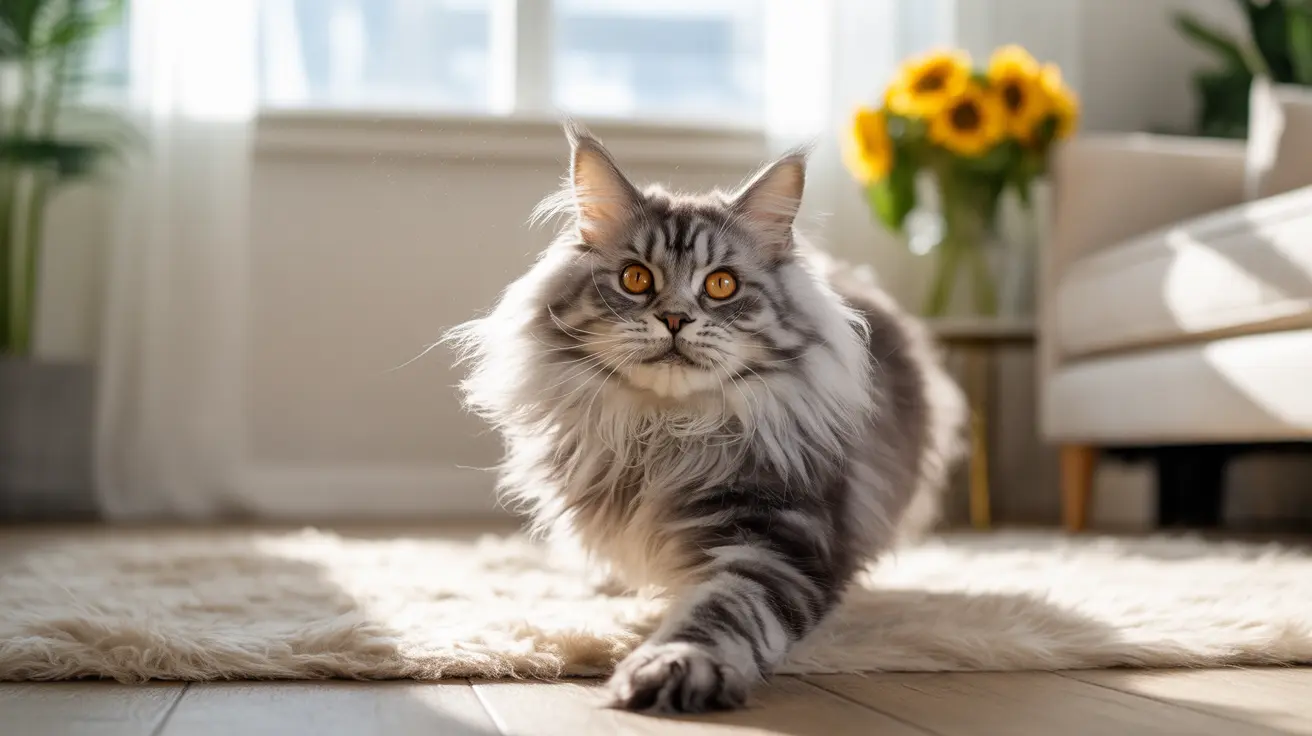Common Causes of Drunk-Like Walking in Cats
Vestibular Disease
The vestibular system controls balance and orientation. When disturbed, it can cause your cat to appear drunk or disoriented. Signs typically include:
- Head tilting to one side
- Circling behavior
- Rapid eye movements (nystagmus)
- Loss of balance
- Nausea and vomiting
Ear Infections and Related Issues
Middle or inner ear infections can severely impact your cat's balance and coordination. These infections often cause inflammation that affects the vestibular apparatus, leading to dizziness and unsteady movement.
Serious Medical Conditions That May Cause Staggering
Neurological Disorders
Various neurological conditions can cause your cat to walk unsteadily, including:
- Cerebellar ataxia
- Stroke
- Brain tumors
- Spinal cord problems
- Inflammatory diseases
Trauma and Injury
Physical injuries from accidents or falls can result in balance problems. These may affect either the nervous system or musculoskeletal structure, leading to unsteady movement.
Immediate Steps to Take
When you notice your cat suddenly walking like it's drunk, take these important steps:
- Secure your cat in a safe, confined space
- Remove potential hazards from the area
- Document when symptoms began
- Contact your veterinarian immediately
- Monitor other symptoms like vomiting or lethargy
Treatment Options and Recovery
Treatment varies depending on the underlying cause but may include:
- Antibiotics for infections
- Anti-inflammatory medications
- Supportive care and fluids
- Physical therapy
- Environmental modifications
- Surgery in severe cases
Frequently Asked Questions
What causes a cat to suddenly walk like they are drunk or unsteady?
Cats may suddenly walk unsteadily due to vestibular disease, ear infections, neurological disorders, trauma, toxin exposure, or other medical conditions affecting balance and coordination. The exact cause requires veterinary diagnosis.
How is vestibular disease diagnosed and treated in cats showing drunk-like walking?
Veterinarians diagnose vestibular disease through physical examination, neurological assessment, and possibly imaging tests like MRI or CT scans. Treatment typically includes supportive care, anti-nausea medications, and addressing any underlying causes if identified.
When should I take my cat to the vet if it starts staggering or losing balance suddenly?
Seek immediate veterinary care if your cat shows sudden balance problems. This is especially urgent if accompanied by other symptoms like vomiting, head tilt, or abnormal eye movements.
Can ear infections cause a cat to walk with an uncoordinated, drunken gait?
Yes, ear infections, particularly those affecting the middle or inner ear, can cause balance problems and uncoordinated walking. These infections require prompt treatment with appropriate antibiotics.
How can I help my cat recover at home if it has vestibular disease or balance problems?
Support your cat's recovery by creating a safe environment with limited climbing opportunities, providing easy access to food, water, and litter box, and following all veterinary recommendations for medication and care. Patience is essential as recovery can take several weeks.






